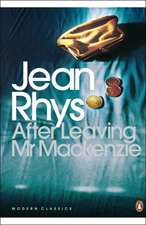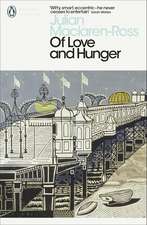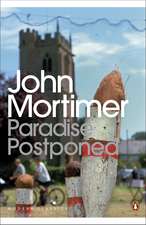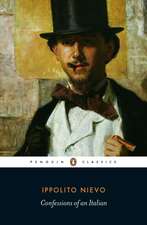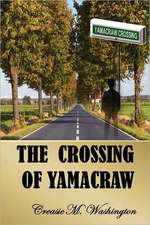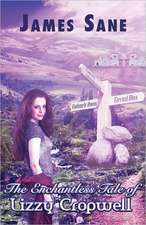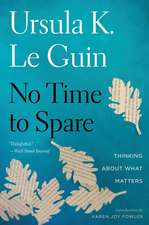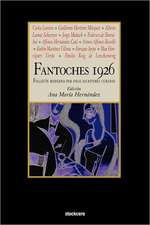The Jane Austen Book Club: Jane Austen Addict
Autor Karen Joy Fowleren Limba Engleză Paperback – 26 ian 2005
Six people - five women and a man - meet once a month in California's Central Valley to discuss Jane Austen's novels. They are ordinary people, neither happy nor unhappy, but each of them is wounded in different ways, they are all mixed up about their lives and relationships. Over the six months they meet, marriages are tested, affairs begin, unsuitable arrangements become suitable - under the guiding eye of Jane Austen a couple of them even fall in love...
'If I could eat this novel, I would' Alice Sebold, author of The Lovely Bones
'A thoroughly delightful comedy of contemporary manners' Entertainment Weekly
'We defy you not to fall head over heels for this lovely novel' Mail On Sunday
| Toate formatele și edițiile | Preț | Express |
|---|---|---|
| Paperback (2) | 53.20 lei 26-32 zile | +19.16 lei 10-14 zile |
| Penguin Books – 26 ian 2005 | 53.20 lei 26-32 zile | +19.16 lei 10-14 zile |
| G.P. Putnam's Sons – 31 mar 2005 | 101.90 lei 3-5 săpt. |
Preț: 53.20 lei
Preț vechi: 63.45 lei
-16% Nou
10.18€ • 10.66$ • 8.42£
Carte disponibilă
Livrare economică 20-26 martie
Livrare express 04-08 martie pentru 29.15 lei
Specificații
ISBN-10: 0141020261
Pagini: 304
Dimensiuni: 129 x 198 x 20 mm
Greutate: 0.22 kg
Editura: Penguin Books
Colecția Penguin
Seria Jane Austen Addict
Locul publicării:London, United Kingdom
Notă biografică
Karen Joy Fowler is the Man Booker shortlisted, bestselling author of Sister Noon (a PEN/Faulkner prize finalist), Sarah Canary, The Sweetheart Season, The Jane Austen Book Club, We Are All Completely Beside Ourselves and the story collection Black Glass. She is a a PEN/Faulkner Prize finalist and lives in Davis and Santa Cruz, California.
Descriere
A moving, wise and delightfully modern comedy of manners from the bestselling, Man Booker shortlisted author Karen Joy Fowler.
Six people - five women and a man - meet once a month in California's Central Valley to discuss Jane Austen's novels. They are ordinary people, neither happy nor unhappy, but each of them is wounded in different ways, they are all mixed up about their lives and relationships. Over the six months they meet, marriages are tested, affairs begin, unsuitable arrangements become suitable - under the guiding eye of Jane Austen a couple of them even fall in love...
'If I could eat this novel, I would' Alice Sebold, author of The Lovely Bones
'A thoroughly delightful comedy of contemporary manners' Entertainment Weekly
'We defy you not to fall head over heels for this lovely novel' Mail On Sunday
Recenzii
"A luxuriant pleasure!" —Alice Sebold
"Part character study, part social commentary, part literary puzzle, Book Club builds on Fowler's success as an author of highly creative fiction." —The New York Times Book Review
“Karen Joy Fowler creates a novel that is so winning, so touching, so delicately, slyly witty that admirers of Persuasion and Emma will simply sigh with happiness.” —Michael Dirda, The Washington Post Book World
“Start quoting a few of Fowler’s puckish lines and it becomes damnably difficult to stop. . . The Jane Austen Book Club amounts to a witty meditation on how the books we choose, choose us too.” —San Francisco Chronicle
“The Jane Austen Book Club offers a sparkling rumination on the act of reading itself and how beloved books can serve as refuge, self-definition, snobbish barricades against other people or pathways out of the old self to a wider world. [It is] a terrific comic novel about a closed society merrily transforming itself by reading.” —Maureen Corrigan, NPR’s All Things Considered
"[Fowler] does so terrific a job of bringing her characters to life that Austen’s work falls away like a husk. It’s an impressive feat of homage, since Fowler essentially borrows
Austen’s great themes…and makes them her own. Miss Austen would be proud.” —The Denver Post
Extras
in which we gather
at Jocelyn's
to discuss Emma
We sat in a circle on Jocelyn's screened porch at dusk, drinking cold sun tea, surrounded by the smell of her twelve acres of fresh-mowed California grass. There was a very pretty view. The sunset had been a spectacular dash of purple, and now the Berryessa mountains were shadowed in the west. Due south in the springtime, but not the summer, was a stream.
"Just listen to the frogs," Jocelyn said. We listened. Apparently, somewhere beneath the clamor of her kennel of barking dogs was a chorus of frogs.
She introduced us all to Grigg. He had brought the Gramercy edition of the complete novels, which suggested that Austen was merely a recent whim. We really could not approve of someone who showed up with an obviously new book, of someone who had the complete novels on his lap when only Emma was under discussion. Whenever he first spoke, whatever he said, one of us would have to put him in his place.
This person would not be Bernadette. Though she'd been the one to request girls only, she had the best heart in the world; we weren't surprised that she was making Grigg welcome. "It's so lovely to see a man taking an interest in Miss Austen," she told him. "Delightful to get the male perspective. We're so pleased that you're here." Bernadette never said anything once if it could be said three times. Sometimes this was annoying, but mostly it was restful. When she'd arrived, she seemed to have a large bat hanging over her ear. It was just a leaf, and Jocelyn removed it as they hugged.
Jocelyn had two portable heaters going, and the porch hummed cozily. There were Indian rugs and Spanish-tile floors of a red that might hide dog hair, depending on the breed. There were porcelain lamps in the shape of ginger jars, round and Oriental, and with none of the usual dust on the bulbs, because it was Jocelyn's house. The lamps were on timers. When it was sufficiently dark out, at the perfect moment, they would snap on all at once like a choir. This hadn't happened yet, but we were looking forward to it. Maybe someone would be saying something brilliant.
The only wall held a row of photographs-Jocelyn's dynasty of Ridgebacks, surrounded by their ribbons and pedigrees. Ridgebacks are a matriarchal breed; it's one of their many attractive features. Put Jocelyn in the alpha position and you have the makings of an advanced civilization.
Queenie of the Serengeti looked down on us, doe eyes and troubled, intelligent brow. It's hard to capture a dog's personality in a photograph; dogs suffer more from the flattening than people do, or cats even. Birds photograph well because their spirits are so guarded, and anyway, often the real subject is the tree. But this was a flattering likeness, and Jocelyn had taken it herself.
Beneath Queenie's picture, her daughter, Sunrise on the Sahara, lay, in the flesh, at our feet. She had only just settled, having spent the first half-hour moving from one of us to the next, puffing hot stagnant-pond smells into our faces, leaving hairs on our pants. She was Jocelyn's favorite, the only dog allowed inside, although she was not valuable, since she suffered from hyperthyroidism and had had to be spayed. It was a shame she wouldn't have puppies, Jocelyn said, for she had the sweetest disposition.
Jocelyn had recently spent more than two thousand dollars on vet bills for Sahara. We were glad to hear this; dog breeding, we'd heard, could make a person cruel and calculating. Jocelyn hoped to continue competing her, though the kennel would derive no benefit; it was just that Sahara missed it so. If her gait could be smoothed out-for Ridgebacks it was all about the gait-she could still show, even if she never won. (But Sahara knew when she'd lost; she became subdued and reflective. Sometimes someone was sleeping with the judge and there was nothing to be done about it.) Sahara's competitive category was Sexually Altered Bitch.
The barking outside ascended into hysteria. Sahara rose and walked stiffly to the screen door, her ridge bristling like a toothbrush.
"Why isn't Knightley more appealing?" Jocelyn began. "He has so many good qualities. Why don't I warm to him?"
We could hardly hear her; she had to repeat herself. The conditions were such, really, that we should have been discussing Jack London. . . .
Most of what we knew about Jocelyn came from Sylvia. Little Jocelyn Morgan and little Sylvia Sanchez had met at a Girl Scout camp when they were eleven years old, and they were fifty-something now. They'd both been in the Chippewa cabin, working on their wood-lore badges. They had to make campfires from teepees of kindling, and then cook over them, and then eat what they'd cooked; the requirement wasn't satisfied unless the Scout cleaned her plate. They had to identify leaves and birds and poisonous mushrooms. As if any one of them would ever eat a mushroom, poisonous or not.
For their final requirement they'd been taken in teams of four to a clearing ten minutes off and left to find their own way back. It wasn't hard, they'd been given a compass and a hint: The dining hall was southwest of them.
Camp lasted four weeks, and every Sunday Jocelyn's parents drove up from the city-three and a half hours-to bring her the Sunday funnies. "Everyone liked her anyway," Sylvia said. This was hard to believe, even for us, and we all liked Jocelyn a ton. "She was attractively ill informed."
Jocelyn's parents adored her so, they couldn't bear to see her unhappy. She'd never been told a story with a sad ending. She knew nothing about DDT or Nazis. She'd been kept out of school during the Cuban missile crisis because her parents didn't want her learning we had enemies.
"It fell to us Chippewas to tell her about communists," said Sylvia. "And child molesters. The Holocaust. Serial killers. Menstruation. Escaped lunatics with hooks for hands. The Bomb. What had happened to the real Chippewas.
"Of course, we didn't have any of it right. What a mash of misinformation we fed her. Still, it was realer than what she got at home. And she was very game, you had to admire her.
"It all came crashing down on the day we had to find our way back to camp. She had this paranoid fantasy that while we were hiking and checking our compass, they were packing up and moving out. That we would come upon the cabin and the dining hall and the latrines, but all the people would be gone. Even more, that there would be dust and spiderwebs and crumbling floorboards. It would be as if the camp had been abandoned for a hundred years. We might have told her too many Twilight Zone plots.
"But here's the weird part. On the last day, her parents came to pick her up, and on the drive back, they told her that they'd gotten divorced over the summer. In fact, she'd been sent off just for this purpose. All those Sunday drives together bringing the funnies, and they couldn't actually stand each other. Her dad was living in a hotel in San Francisco and had been the whole month she was gone. 'I eat all my meals in the hotel restaurant,' he told her. 'I just come down for breakfast and order whatever catches my fancy.' Jocelyn said he made it sound as though that were the only reason he'd moved out, because restaurant eating would be so swell. She felt she'd been traded for shirred eggs."
One day several years later he called her to say he had a touch of the flu. Nothing for her to worry her darling head about. They had tickets to a baseball game, but he didn't think he could make it, he'd have to take a rain check. Go, Giants! It turned out the flu was a heart attack. He didn't get to the hospital until he was already dead.
"No wonder she grew up a bit of a control freak," Sylvia said. With love. Jocelyn and Sylvia had been best friends for more than forty years. . . .
There's no heat with Mr. Knightley," Allegra said. She had a very expressive face, like Lillian Gish in a silent movie. She frowned when she was making a point, had done this since she was a tiny girl. "Frank Churchill and Jane Fairfax meet in secret and quarrel with each other and make it up and lie to everyone they know. You believe they're in love because they behave so badly. You can imagine sex. You never feel that with Mr. Knightley." Allegra had a lullaby voice, low, yet penetrating. She was often impatient with us, but her tones were so soothing we usually realized it only afterward.
"That's true," Bernadette agreed. Behind the lenses of her tiny glasses her eyes were round as pebbles. "Emma is always saying how reserved Jane is, even Mr. Knightley says so, and he's so perceptive about everyone. But she's the only one in the whole book"-the lights came on, which made Bernadette jump, but she didn't miss a word for it-"who ever seems desperately in love. Austen says that Emma and Mr. Knightley make an unexceptional marriage." She paused reflectively. "Clearly she approves. I expect the word 'unexceptional' meant something different in Austen's day. Like, nothing to be ashamed of. Nothing to set tongues wagging. Neither reaching too high nor stooping too low."
Light poured like milk over the porch. Several large winged insects hurled themselves against the screens, frantic to find it, follow it to the source. This resulted in a series of thumps, some of them loud enough to make Sahara growl.
"No animal passion," said Allegra.
Sahara turned. Animal passion. She had seen things in the kennels. Things that would make your hair stand on end.
"No passion at all." Prudie repeated the word, but pronouncing it as if it were French. Pah-see-ohn. Because she taught French, this wasn't as thoroughly obnoxious as it might have been.
Not that we liked it. The month before, Prudie's beautician had removed most of her eyebrows; it gave her a look of steady surprise. We couldn't wait for this to go away. "Sans passion, amour n'est rien," Prudie said.
"Après moi, le deluge," Bernadette answered, just so Prudie's words wouldn't fall into a silence that might be mistaken for chilly. Bernadette was really too kind sometimes.
Nothing smelly outside. Sahara came away from the screen door. She leaned into Jocelyn, sighing. Then she circled three times, sank, and rested her chin on the gamy toe of Jocelyn's shoe. She was relaxed but alert. Nothing would get to Jocelyn that didn't go through Sahara first.
"If I may." Grigg cleared his throat, held up his hand. "One thing I notice about Emma is that there's a sense of menace." He counted off on his fingers. He wore no ring. "The violent Gypsies. The unexplained pilferings. Jane Fairfax's boat accident. All Mr. Woodhouse's worries. There's a sense of threat hovering on the edges. Casting its shadow."
Prudie spoke quickly and decisively. "But Austen's whole point is that none of those things is real. There is no real threat."
"I'm afraid you've missed the whole point," said Allegra.
Grigg said nothing further. His eyelashes dropped to his cheeks, making his expression hard to read. It fell to Jocelyn as hostess to change the subject.
"I read once that the Emma plot, the humbling of a pretty, self-satisfied girl, is the most popular plot of all time. I think it was Robertson Davies who said so. That this was the one story everyone was bound to enjoy."
. . .
When Jocelyn was fifteen, she met two boys while playing tennis at the country club. One of them was named Mike, the other Steven. They were, at first glance, average boys. Mike was taller and thinner, with a prominent Adam's apple and glasses that turned to headlights in the sun. Steven had better shoulders and a nice smile but a fat ass.
Mike's cousin Pauline was visiting from New York, and they introduced themselves to Jocelyn because they needed a fourth for doubles. Jocelyn had been working on her serve with the club pro. She wore her hair in a high ponytail that summer, with bangs like Sandra Dee in Take Her, She's Mine. She had breasts, pointy at first, but now rounding. Her mother had bought her a two-piece bathing suit with egg-cup shaping, in which Jocelyn was exquisitely self-conscious. But her best feature, she always believed, had been her serve. Her toss that day was perfect, taking her to full stretch, and she spun the ball into the service court. It seemed she couldn't miss. Her spirits, as a consequence, were high and wild.
Neither Mike nor Steven spoiled things by being particularly competitive. They split games sometimes, and sometimes they didn't; no one really kept score but Jocelyn, and she did so only privately. They traded partners. Pauline was such a little snot, accusing people of foot faults in a friendly game, that Jocelyn looked better and better by comparison. Mike said she was a good sport, and Steven said she wasn't a bit stuck-up, not like most girls.
They continued to meet and play after Pauline went back home, even though three was such an awkward number. Sometimes when they rallied, Mike or Steven would try to run from one side of the net to the other to play on both teams at once. It never worked and they never stopped trying. Eventually some adult would accuse them of not being serious and throw them off the court.
After tennis, they'd change into their swimsuits and meet at the pool. Everything about Jocelyn changed with her clothes. When she came out of the women's locker room, her movements were cramped and tight. She'd wrap a towel around her waist and remove it only to slip into the water.
Still, she liked when they stared; she felt the pleasure of it all over her skin. They came in after her, touching her under the water, where no one could see. One or the other would swim down to put his head between her legs and surface with her knees hooked around his shoulders, the water from her ponytail streaming into the cup over her breast. One day one of them, she never knew which, pulled the knot of her top loose. She caught it just as it began to drop. She could have stopped this with a word, but she didn't. She felt dangerous, brazen. She felt all lit up.
She had no desire for anything further. She didn't actually like Mike or Steven that much, and certainly not in that way. When she lay in her bed or the bath, touching herself more intimately and successfully than they did, the boy she pictured was Mike's older brother, Bryan. Bryan went to college and worked summers as a lifeguard at the pool. He looked the way a lifeguard looks. Mike and Steven called him the boss, he called them the squirts. He had never spoken to Jocelyn, possibly didn't even know her name. He had a girlfriend who rarely got wet, but lay on a beach chair reading Russian novels and drinking Coca-Cola. You could tell how many she'd drunk from the maraschino cherries lined up along her napkin.
In late July there was a dance, and it was girl-ask-boy. Jocelyn asked Mike and Steven both. She thought they knew this, assumed they would talk about it. They were best friends. She thought it would hurt someone's feelings if she asked one and not the other, and she didn't want to hurt anyone. She had a strapless sundress to wear; she and her mother went out and bought a strapless bra.
Mike showed up at her house first, in a white shirt and a sports jacket. He was nervous; they were both nervous; they needed Steven to arrive. But when he did, Mike was shocked. Hurt. Furious. "You two have a great time," he said. "I got other things to do."
Jocelyn's mother drove Jocelyn and Steven to the club and wouldn't be picking them up again until eleven o'clock. Three whole hours had to pass somehow. Glass torches lit the pathway to the clubhouse, and the landscape flickered. There were rose wreaths and pots of ivy animals. The air cool and soft, the moon sliding down the sky. Jocelyn didn't want to be with Steven. It felt like a date now, and she didn't want to date him. She was rude and miserable, wouldn't dance, hardly talked, wouldn't take off her cardigan. She was afraid he might get the wrong idea, so she was trying to clarify things. Eventually he asked some other girl to dance.
Jocelyn went out by the pool and sat in one of the lounge chairs. She knew that she'd been unforgivably mean to Steven, wished she'd never met him. She wasn't wearing stockings and her legs were cold. She could smell her own Wind Song perfume mixing with the chlorine.
Music floated over the pool. "Duke of Earl." "I Want to Hold Your Hand." "There is a house in New Orleans." Bryan sat down on the end of her chair, making her blood skip. Probably she was in love with him.
"Aren't you the thing?" he said. The only light around them came from under the water and was blue. He was turned away, so she didn't see his face, but his voice was full of contempt. "There's a word for girls like you."
Jocelyn hadn't known this, hadn't even known there were girls like her. Whatever the word was, he didn't say it.
"You had those boys in such a fever. Did you like that? I bet you liked it. Did you know they used to be best friends? They hate each other now."
She was so ashamed. She'd known all summer there was something wrong with the way she was behaving, but she hadn't known what it was. She had liked it. Now she understood that the liking it was the wrong part.
Bryan gripped one of her ankles hard enough so that the next morning she had a bruise where his thumb had been. He slid the other hand up her leg. "You asked for this," he said. "You know you did." His fingers grabbed at her panties, pushed them aside. She felt the slick surface of his nails. She didn't tell him not to. She was too ashamed to move. His finger found its way inside her. He shifted his weight until he lay over her. He was wearing the same bay aftershave her father had worn.
"Bryan?" His girlfriend's voice, over by the clubhouse. "True Love Ways" playing on the turntable-Jocelyn would never like Buddy Holly again, even though he was dead, poor guy-the girlfriend calling. "Bryan? Bryan!" Bryan slid his finger out, let go of her. He stood up, shaking his jacket into place and smoothing his hair. He put his finger into his mouth while she watched, took it out. "We'll catch up later," he told her.
Jocelyn walked down the watery path through the torches and out to the road. The country club was in the country, up a long hill. It took twenty minutes to drive there. The roads twisted and had no sidewalks and were surrounded by trees. Jocelyn started home.
She was wearing sandals with one-inch heels. She'd painted her toenails, and in the moonlight, her toes looked as if they'd been dipped in blood. Already there was a raw spot on the back of one heel. She was very frightened, because ever since camp she'd lived in a world with communists and rapists and serial killers. Whenever she heard a car coming, she stepped away from the road and crouched until it passed. The headlights were like searchlights. She pretended she was someone innocent, someone who hadn't asked for anything. She pretended she was a deer. She pretended she was a Chippewa. She pretended she was on the Trail of Tears, an event Sylvia had recounted in vivid if erroneous detail.
She thought she'd be home before her mother left to pick them up. All she had to do was go downhill. But in the beam of a passing car, suddenly she didn't recognize anything. At the bottom of the hill was a crossroads she never came to, and now she was going up, which she shouldn't be doing, even for a short time. There were no street signs, no houses. She kept going forward only because she was too ashamed to go back. Hours passed. Finally she found a small gas station, which was closed, and a pay phone, which was working. As she dialed she was sure her mother wouldn't answer. Her mother might be out, frantically looking for her. She might have packed all her clothes into the car while Jocelyn was at the dance, and moved away.
It was midnight. Her mother made a horrible to-do about it, but Jocelyn convinced her that she'd only wanted some fresh air, some exercise, the stars.








